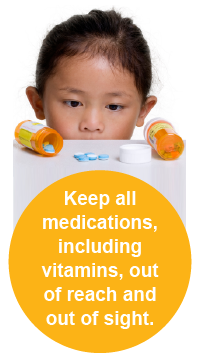Why Adoption Is Bittersweet
My husband and I became foster parents a year and a half ago. We didn’t have any friends or family who fostered. It was all new to us, and we’ve found it’s all new to a lot of people. But the beauty and brokenness is worth sharing, worth talking about, worth leaning into, because over 400,000 kids are in foster care in America. They are in our kids’ classrooms and at our neighborhood playgrounds, and they need us to see them and know them and love them.
Today, we attended the adoption hearing for a sibling group of three kiddos. They had been our very first long-term foster care placement, and they moved from our home to their adoptive family nearly a year ago. It often takes the legal system a while to catch up. So after being in foster care for two years and eight months, they were finally, legally, becoming a part of their forever family.
This is good, good news for these dear ones. But the news of adoption is complex for me, for them, for their biological parents. These three lived with us for six months last year before moving into their foster-to-adopt home. They felt like ours, but they weren’t and aren’t. And I miss them.
I miss Jen’s unending stories and Victor’s impossibly ambitious projects and Nick’s sweet 2 a.m. snuggles. I miss the simple moments. Our interactions are awkward now; their eye contact, guarded; and their hugs, shortened.
I can’t imagine it being otherwise. They called me “Miss Liz” and then “Mommy” and now “Miss Liz” again. For them to have to process all those transitions in their little hearts, awkward and guarded seem like the most any of us could hope for. This is especially so as the eyes of so many watch their every move: the beloved foster parents before us, my husband and me, the adoptive parents, the adoptive parents’ parents, social workers, court-appointed special advocates (CASAs). Everyone there today watching.
Losing our connection to them is worth all they are gaining. Of course it is. It’s a minor sacrifice.
The bigger sacrifice is theirs—one they didn’t choose. These precious kids won’t grow up with their biological parents. There is tragedy in that. All the “gotcha day” celebrations won’t take away the questions they have over why their parents let them go.
As another adoptee said, “The gains don’t fully replace the losses, nor should we ever expect them to.” All the breaks and shifts in their storyline the past three years can’t be tied up in a bow: all the new homes, new moms, new names.
I’m deeply grateful for their new constant, but still heartbroken that foster care and adoption need to exist for these kids, most of all, but also for their biological parents who won’t know their own beautiful children. My taste of loss is nothing compared to theirs.
And so it’s complex. I’m aching with tears and bursting with them at the same time. Today is a good day, a hope-filled day for their new forever. May their tomorrows look up even when they look back.


 Children are curious by nature, and it makes sense that they would be even more curious when it comes to medication. Many medications look and taste like candy. While it’s important to encourage our kids to explore and discover new things, when it comes to medication, we want to be careful to keep them safe. Here are a few tips to show you how.
Children are curious by nature, and it makes sense that they would be even more curious when it comes to medication. Many medications look and taste like candy. While it’s important to encourage our kids to explore and discover new things, when it comes to medication, we want to be careful to keep them safe. Here are a few tips to show you how.
